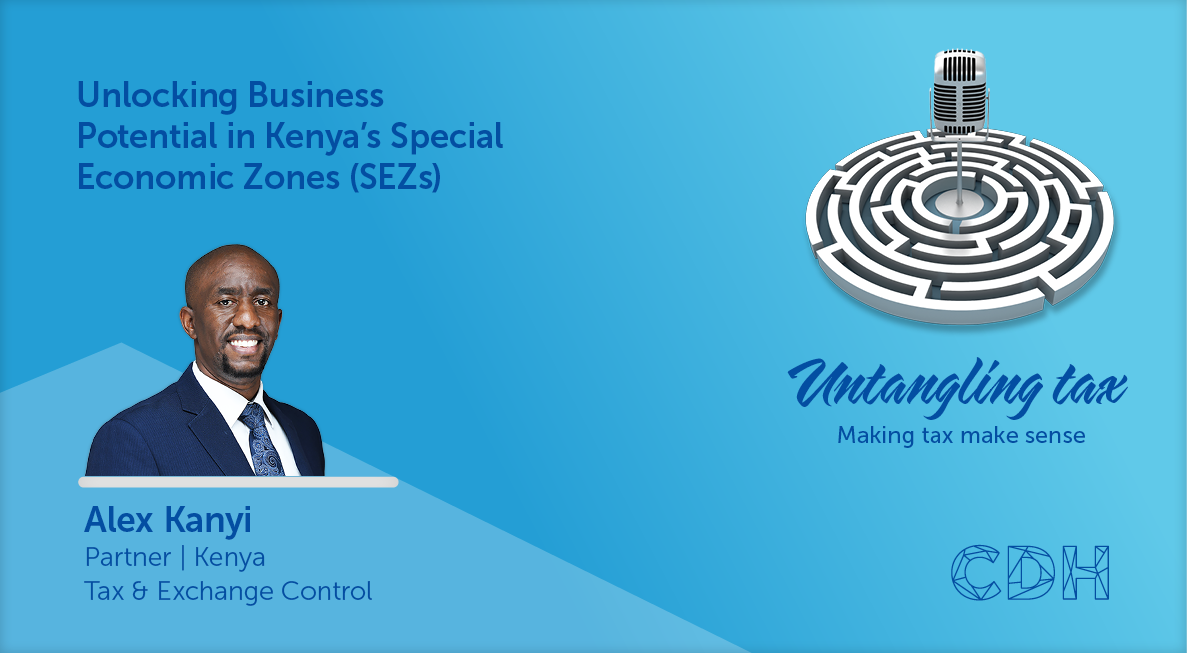SARS v PAJA: The saga continues
At a glance
- The recent case of Kerbyn Cape 2 Proprietary Limited v Commissioner, SARS (15899/2023) [2025] ZAWCHC 308 again dealt with the issue of a taxpayer's right to approach the High Court to request an administrative review of a decision by the South African Revenue Service.
- This matter provides guidance to taxpayers when considering whether all internal remedies have been exhausted (and therefore whether, under the Promotion of Administrative Justice Act 3 of 2000, administrative review is possible).
- Kerbyn Cape also reminds taxpayers that knowing what decisions it can object against, and knowing when to object, are as important as the merits of its case. Even the strongest merits stand no chance if a court refuses to consider them on procedural grounds.
Background facts in Kerbyn Cape
SARS selected Kerbyn Cape for an income tax audit and value-added tax (VAT) audit. Following the finalisation of these audits, SARS issued Kerbyn Cape with additional assessments for both income tax and VAT on 5 February 2016.
At the time the additional assessments were received by Kerbyn Cape, its sole director was overseas. As a result of company documents being stored at his private residence and thus being inaccessible (these being required in order to object to the additional assessments), and due to seeking expert tax advice prior to lodging its objections, Kerbyn Cape took longer than the then prescribed 30 business days in which to lodge its objections. In fact, Kerbyn Cape took until 27 May 2016 to lodge its objection to the income tax additional assessment, and until 29 October 2016 to lodge its objection to the VAT additional assessment.
SARS declined to consider Kerbyn Cape’s first income tax objection on the basis that it was invalid as it had been filed outside of the prescribed time period without exceptional circumstances having been shown for this delay. Despite this, SARS invited Kerbyn Cape to submit a second objection addressing whether exceptional circumstances existed to warrant SARS considering its objection. This Kerbyn Cape did, but SARS also declined to consider this second objection.
Nevertheless, SARS again invited Kerbyn Cape to submit a third objection, which Kerbyn Cape did in October 2016, and again invited Kerbyn Cape to submit a fourth objection following SARS declining to consider its third objection, which Kerbyn Cape did on 17 August 2017. Finally, SARS issued a letter to Kerbyn Cape on 21 September 2017 indicating that it did not consider exceptional circumstances to exist that would warrant it considering Kerbyn Cape’s income tax objections, and thus these were declined.
A similar process occurred in respect of Kerbyn Cape’s VAT objections. SARS declined to consider Kerbyn Cape’s first VAT objection on the basis that it was invalid. Kerbyn Cape therefore submitted a second VAT objection on 7 August 2017. On 29 August 2017, SARS issued a letter to Kerbyn Cape indicating that it did not consider exceptional circumstances to exist that would warrant it considering Kerbyn Cape’s VAT objections, and thus these were declined.
As a result, Kerbyn Cape decided to turn to the Tax Ombud, filing a complaint against SARS in June 2018 in respect of both the income tax and VAT additional assessments. Nothing came of this, and on 6 March 2019 Kerbyn Cape filed a consolidated objection to both additional assessments.
SARS declined the consolidated objection on the basis that exceptional circumstances were not demonstrated by Kerbyn Cape for the late filing of this objection, and that the additional assessments had already prescribed. Therefore, Kerbyn Cape applied to the High Court in terms of the Promotion of Administrative Justice Act 3 of 2000 (PAJA) for the review of SARS’ decision not to consider its objections.
High Court’s decision
SARS raised two points in limine (i.e. procedural points which had to be decided prior to the merits of the matter being heard, and the outcome of which could impact whether the court would consider the merits). These were that: (i) the High Court lacked jurisdiction to hear the matter as the Tax Court had exclusive jurisdiction over tax matters; and (ii) Kerbyn Cape had not exhausted internal remedies as required by section 7(2) of PAJA.
On the point of jurisdiction, section 105 of the Tax Administration Act 28 of 2011 (TAA) provides that: “A taxpayer may only dispute an assessment or decision in section 104 in proceedings under this Chapter, unless a High Court otherwise directs.” (emphasis added)
Based on previous cases (most notably Commissioner, SARS v Rappa Resources Proprietary Limited [2023] (4) SA 488 (SCA)), SARS submitted that Kerbyn Cape could only approach the High Court to request that it hear the matter where exceptional circumstances existed.
On the point of internal remedies, SARS argued that Kerbyn Cape had not made out any case for having exhausted these. In response, Kerbyn Cape argued that due to the lapse of time, it was prohibited from approaching the Tax Court for condonation of the late filing of its objections (as any condonation application had to be filed within 20 business days of SARS’ decision not to accept the objection as valid in terms of rule 50 of the Rules Promulgated Under Section 103 of the TAA).
Considering these arguments, the High Court found that Kerbyn Cape had not made out an argument under section 105 for why the High Court should direct that the matter be heard by it. Therefore, the court decided SARS’ first point in limine in its favour.
With respect to exhausting internal remedies, the High Court pointed out that a decision by SARS that an objection is invalid for being filed outside the prescribed time period is in and of itself subject to objection. Therefore, the court concluded that Kerbyn Cape should have filed an objection to SARS’ first decision not to consider its first income tax and VAT objections (as opposed to filing subsequent objections). On this basis, the court decided SARS’ second point in limine in its favour as well.
Implications of Kerbyn Cape for taxpayers
With the recent hearing of United Manganese of Kalahari in the Constitutional Court, the decision in Kerbyn Cape with respect to jurisdiction and a taxpayer’s ability to approach the High Court under section 105 of the TAA has been somewhat overshadowed. Importantly, United Manganese of Kalahari has clarified that when seeking the High Court’s directive that it hears a tax matter, exceptional circumstances are not required to be shown by a taxpayer – the relevant considerations for whether a High Court should direct that it hears a matter under section 105 of the TAA are fact-specific, hinge on the nature of relief being requested from the High Court, and include, among other things, whether the matter is capable of being subject to appeal to the Tax Court or not, and whether it is desirable in the circumstances for a specific point in the matter to be separated from the remainder of the dispute and heard in the High Court.
That being said, Kerbyn Cape still provides guidance to taxpayers when considering whether all internal remedies have been exhausted (and therefore whether, under PAJA, administrative review is possible). Interestingly, the court in Kerbyn Cape decided to ignore the fact that SARS invited the taxpayer to submit further objections on no less than three occasions. Instead, the court held that the taxpayer should have objected to SARS’ decision not to consider its first income tax and VAT objections. Where a taxpayer has submitted an objection which SARS considers invalid, it is not uncommon for SARS to decline the objection but invite the taxpayer to submit a second objection remedying the invalidity of the first. On the facts in Kerbyn Cape, it would not be unreasonable for the taxpayer to take SARS up on this invitation and file a second objection (or third or even fourth, as was the case).
Some views have been expressed that SARS should not be permitted to ‘run the clock down’ on a taxpayer by issuing successive invitations to submit further objections until an additional assessment has prescribed. The High Court’s decision in Kerbyn Cape should not be read as condoning this. However, once SARS had issued its letters of 29 August and 21 September 2017 about the income tax and VAT objections respectively, it was at this time incumbent on the taxpayer to object to SARS’ decision not to consider its objections, and then appeal this to the Tax Court.
Kerbyn Cape therefore reminds a taxpayer that knowing what decisions it can object against, and knowing when to object, are as important as the merits of its case. Even the strongest merits stand no chance if a court refuses to consider them on procedural grounds. Due to the specific dispute resolution process contained in the TAA, this is all the more important for tax disputes. For this reason, seeking expert advice during a tax dispute can be as important procedurally as it is when formulating the merits of an objection.
The information and material published on this website is provided for general purposes only and does not constitute legal advice. We make every effort to ensure that the content is updated regularly and to offer the most current and accurate information. Please consult one of our lawyers on any specific legal problem or matter. We accept no responsibility for any loss or damage, whether direct or consequential, which may arise from reliance on the information contained in these pages. Please refer to our full terms and conditions. Copyright © 2026 Cliffe Dekker Hofmeyr. All rights reserved. For permission to reproduce an article or publication, please contact us cliffedekkerhofmeyr@cdhlegal.com.
Subscribe
We support our clients’ strategic and operational needs by offering innovative, integrated and high quality thought leadership. To stay up to date on the latest legal developments that may potentially impact your business, subscribe to our alerts, seminar and webinar invitations.
Subscribe




